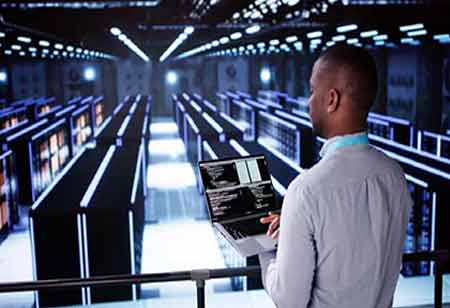THANK YOU FOR SUBSCRIBING

Investors Who See with Sustainability's Eyes
Luis Bermejo, Co-founder & Managing Partner, Alaya Capital

 Luis Bermejo, Co-founder & Managing Partner, Alaya Capital
Luis Bermejo, Co-founder & Managing Partner, Alaya CapitalWe understand that the companies operate in a broader context and have an impact on the communities where they are active. However, we cannot leave the mission of reconstructing the world in the impact startups’ hands. We should consider sustainability in business activity as a responsibility of very actor of the ecosystem.
From the beginning, we have observed that startups are generally created with an impact purpose, which is driven by the motivation of solving problems through technology. Thus, for the startups, it is more naturally presented the idea of thinking of an “impact purpose”. One of the most commonly used theoretical frameworks to understand the impact are the UN Sustainable Development Goals, where startups can find how their innovations impact on the protection of the environment or on people’s life quality in the medium and long term.
For example, Betterly is the first social unicorn in Latin America, a platform that delivers benefits and Life Insurance, free of charge for companies’ workers. Up to now, they have delivered 400 million dollars on financial coverage for 30,000 team members of 205 companies.
In this way, they help achieve the SDG 8, which seeks to protect the labor rights and promote a safe and secure working environment for all workers and the SDG 10, which seeks to reduce inequality and to adopt mainly fiscal, wage, and social safety policies in order to progressively reach equality.
"While it has been long talked about impact startups and good sustainability practices, we currently have the responsibility as investors to use these criteria as a way to evaluate their investments. The effects caused by the pandemic, the social gaps and the climate crisis clearly show that companies of the future should consider this scenario and hopefully, be part of the change "
But the debate has been expanded and the world of startups has taken a concept which has been in the corporate world for years: the ESG principles (environmental, social & governance). They refer to the way companies’ practices influence the environment, society and the organization’s transparency, considering their relationship with every actor with which they interact (clients, workers, suppliers, investors, etc.) Thus, we can say that we have taken one step forward as regards the debate over the sustainability of startups. We no longer ask them to change the world just with technology, but also with responsibility and making sure to have good practices in the three ESG dimensions.
But, why did it take so long for this concept to arrive? Because it was believed that startups had a small structure and that their ESG impact would not be of much importance.
With the boom of startups as source of innovation and the increase on the available investments for them, today, startups have a significant structure and they are relevant actors in the economy.
It has been proven that if a company is created with good ESG practices, they can adapt to changes in their surroundings and they can find better opportunities in it. However, if they are detrimental to the earth or to the people living in it, the longterm risks are high and their profitability will be lower.
In Ayala Capital, we started to walk through this path, with the creation of our third fund. And today, we consider ourselves an impact-driven fund, because we believe that the best way to conduct good businesses in the long term, is to encourage positive impact. This is why, we invest in impact startups (that develop solutions to face the environmental and social challenges) and in sustainability startups (that, even though they do not have an impact purpose, they are responsible as regards to the ESG principles). This idea is carried out throughout all our investment process: it takes part in the research of the startups for investment, in our decisions and in the management of these principles, once it enters our portfolio.
We are convinced that sustainability is the only way to do businesses at present and in the future. We are invited to satisfy the current needs, while not undermining future generations’ capacities.
Read Also
Where Safety Really Lives: Between the Plan and the Jobsite
Accelerating the Shift Toward Data-Led Construction Excellence
Building Projects Through People, Planning and Culture
Innovating the Future of Construction: Insights From Power Design's Leadership
Advancing Construction with Technology and Care
Technology as a Strategic Advantage in Preconstruction

 Copyright © 2026 All Rights Reserved | by:
Copyright © 2026 All Rights Reserved | by: Construction Tech Review
| Subscribe | About us | Sitemap| Editorial Policy| Feedback Policy














